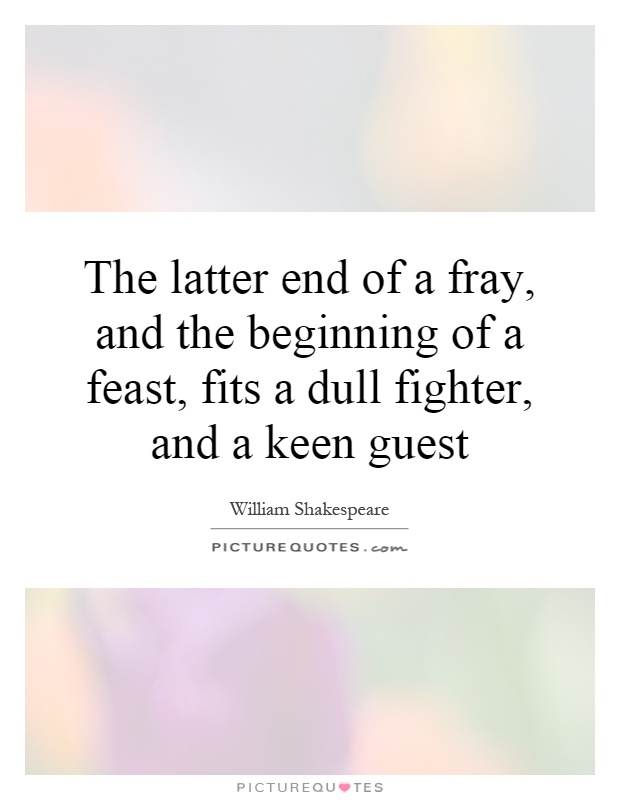The latter end of a fray, and the beginning of a feast, fits a dull fighter, and a keen guest

The latter end of a fray, and the beginning of a feast, fits a dull fighter, and a keen guest
In the world of William Shakespeare, the themes of conflict and celebration are often intertwined, reflecting the complexities of human nature and the cyclical nature of life itself. The quote "The latter end of a fray, and the beginning of a feast, fits a dull fighter, and a keen guest" encapsulates this idea perfectly, highlighting the contrast between those who thrive in times of peace and joy, and those who struggle to find their place in moments of chaos and strife.Shakespeare's plays are filled with characters who embody both sides of this dichotomy. On one hand, there are the warriors and fighters who excel in battle but falter when faced with the prospect of peace and prosperity. These characters are often driven by their desire for power and dominance, and find it difficult to adapt to a world where their skills are no longer needed. In "Macbeth," for example, the titular character is a fierce warrior who thrives in the midst of conflict, but becomes increasingly paranoid and unstable as he tries to hold onto his power in times of peace.
On the other hand, there are the guests and revelers who revel in the joys of life and find fulfillment in moments of celebration and camaraderie. These characters are often portrayed as more lighthearted and carefree, able to find happiness and contentment in the simple pleasures of food, drink, and companionship. In "A Midsummer Night's Dream," for instance, the characters come together for a joyous wedding celebration that serves as a stark contrast to the chaos and confusion that precedes it.
Ultimately, Shakespeare's quote serves as a reminder of the dualities that exist within all of us – the capacity for both conflict and harmony, struggle and joy. It is a reflection of the human experience, where we must navigate the challenges of life's battles while also finding moments of peace and celebration to nourish our souls.












 Friendship Quotes
Friendship Quotes Love Quotes
Love Quotes Life Quotes
Life Quotes Funny Quotes
Funny Quotes Motivational Quotes
Motivational Quotes Inspirational Quotes
Inspirational Quotes